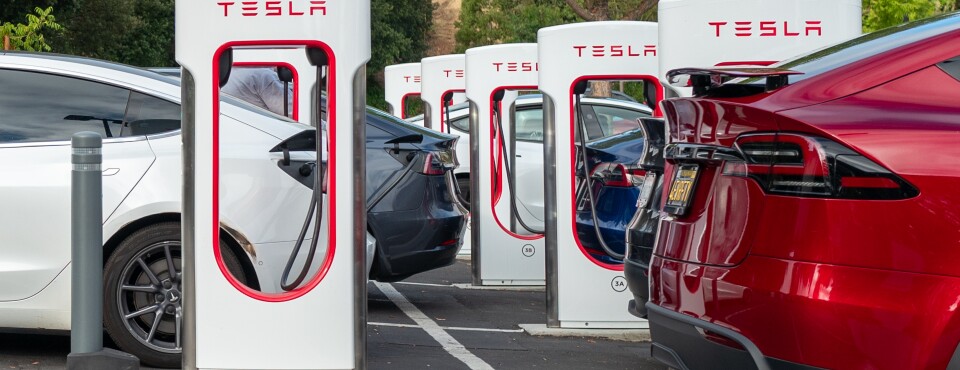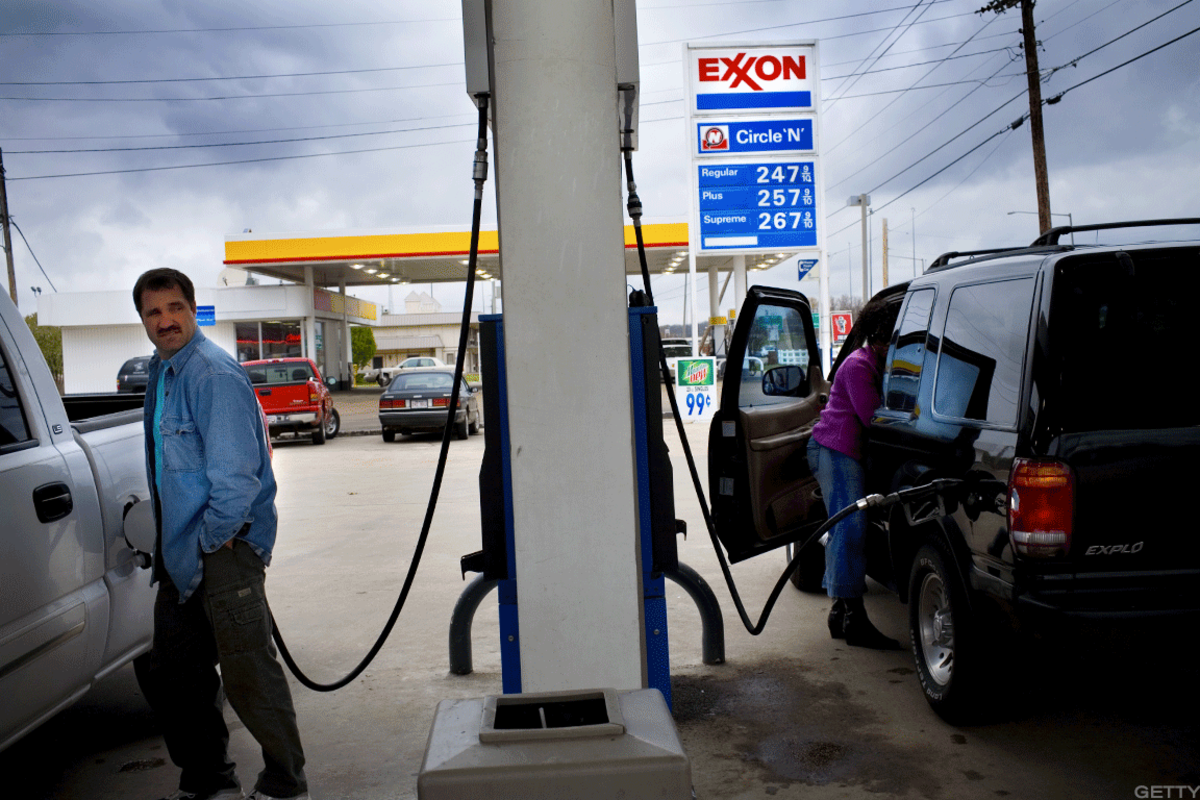Auto Dealers Intensify Fight Against Electric Vehicle Regulations

Table of Contents
Financial Concerns and Investment in Infrastructure
Auto dealers are raising significant concerns about the financial implications of the rapid shift towards EVs. These concerns center around the high initial costs associated with EV inventory and the substantial investment needed to adapt their infrastructure.
High Initial Costs of EV Inventory
Dealers cite the high upfront costs of EVs as a major obstacle. The profit margins on EVs are often lower compared to traditional gasoline vehicles, impacting their overall profitability. This is further compounded by the substantial investment required in new charging infrastructure.
- Limited profitability on EVs: The lower profit margins on EVs, compared to internal combustion engine (ICE) vehicles, squeeze dealer revenue.
- Lack of government support for infrastructure development: Many dealers operate in areas lacking sufficient government support for building EV charging stations, making the upfront investment even riskier.
- Uncertainty surrounding future EV demand and potential resale value: The long-term demand for specific EV models and their future resale value remain uncertain, adding another layer of financial risk for dealers.
Impact on Service Departments
The transition to EVs also poses a challenge to the service departments of dealerships. Electric vehicles are significantly less complex mechanically than gasoline-powered cars, leading to concerns about reduced revenue from service and repair work.
- Fewer parts replacements and repairs needed for EVs: The simpler mechanics of EVs translates to fewer opportunities for repairs and parts replacements, impacting service department revenue.
- Need for specialized training and tools to service EVs: Dealerships need to invest in specialized training for their mechanics and acquire new tools to service the electric components of EVs, adding to their costs.
- Potential job losses in service departments: The reduced workload in service departments due to lower maintenance needs of EVs could potentially lead to job losses.
Resistance to Sales Targets and Mandates
A significant aspect of the dealers' resistance stems from the government mandates setting specific sales quotas for electric vehicles. Dealers argue that these quotas are unrealistic given current consumer demand and market realities.
Quotas and Deadlines
Many dealers feel that the imposed quotas and deadlines are unrealistic, given the current state of EV adoption among consumers. They argue that government regulations shouldn't dictate the market pace of EV adoption.
- Concerns that these quotas are unrealistic: The current consumer demand for EVs doesn't align with the ambitious targets set by many governments.
- Arguments that the market should dictate the pace of EV adoption: Dealers believe that market forces, not government mandates, should drive the transition to EVs.
- Fear of penalties for failing to meet mandated quotas: Dealers face significant financial penalties if they fail to meet the government-mandated sales quotas for electric vehicles.
Consumer Readiness and Acceptance
Dealers also point to a lack of consumer readiness for widespread EV adoption. Concerns about range anxiety, charging infrastructure limitations, and higher purchase prices compared to gasoline vehicles are major factors inhibiting sales.
- Concerns about range anxiety and charging infrastructure availability: Consumers remain apprehensive about the limited range of some EVs and the availability of reliable charging infrastructure.
- High purchase prices of EVs compared to gasoline-powered vehicles: The higher initial cost of EVs is a significant barrier to entry for many consumers.
- Lack of consumer awareness regarding EV benefits and technology: Many consumers are still unaware of the benefits and features of electric vehicles, hindering wider adoption.
Lobbying Efforts and Political Pressure
Faced with these challenges, auto dealer associations are employing various lobbying strategies to influence policymakers and mitigate the impact of electric vehicle regulations.
Influence on Policymakers
Dealer associations are actively engaged in lobbying efforts to influence policymakers and shape the future of electric vehicle regulations.
- Funding political campaigns and influencing legislative decisions: Significant resources are being used to influence political campaigns and legislative outcomes.
- Highlighting the negative economic consequences of stringent regulations: Dealers are emphasizing the potential job losses and negative economic impacts on dealerships resulting from stringent regulations.
- Advocating for a more gradual transition to EVs: Dealers are advocating for a slower, more measured transition to EVs, allowing the market to adapt gradually.
Legal Challenges and Litigation
Some dealer groups are considering or have already initiated legal challenges against regulations deemed unfair or impractical.
- Arguments based on constitutional rights or economic viability: Legal challenges often cite constitutional rights or argue that the regulations are economically unviable for dealers.
- Potential for prolonged legal battles and further delays in EV adoption: Legal challenges can lead to lengthy court battles and delay the widespread adoption of electric vehicles.
- Uncertainty surrounding the outcomes of these legal challenges: The outcomes of these legal battles remain uncertain, adding to the complexity of the situation.
Conclusion
The fight between auto dealers and proponents of stricter electric vehicle regulations is far from over. Dealers’ concerns about financial viability, consumer readiness, and the speed of mandated changes are significant and warrant attention. Understanding the various perspectives and the implications of these regulations is crucial for shaping a future where both the industry and the environment thrive. Further discussion and collaboration are needed to navigate the transition to electric vehicles effectively. The debate surrounding electric vehicle regulations will continue to evolve, impacting not only auto dealers but also consumers and the environment. Staying informed on the latest developments in electric vehicle regulations is critical for both industry professionals and consumers alike.

Featured Posts
-
 Sergey Yurskiy 90 Let Pamyat Ob Aktere Intelligente I Genii
May 24, 2025
Sergey Yurskiy 90 Let Pamyat Ob Aktere Intelligente I Genii
May 24, 2025 -
 Are Gas Prices The Lowest Ever This Memorial Day Weekend
May 24, 2025
Are Gas Prices The Lowest Ever This Memorial Day Weekend
May 24, 2025 -
 Explanation Of Kyle Walkers Partying After Annie Kilners Flight Home
May 24, 2025
Explanation Of Kyle Walkers Partying After Annie Kilners Flight Home
May 24, 2025 -
 Kermits Words Of Wisdom A Look At The University Of Maryland Commencement Speech
May 24, 2025
Kermits Words Of Wisdom A Look At The University Of Maryland Commencement Speech
May 24, 2025 -
 Seattle Parks A Haven During The Pandemic
May 24, 2025
Seattle Parks A Haven During The Pandemic
May 24, 2025
